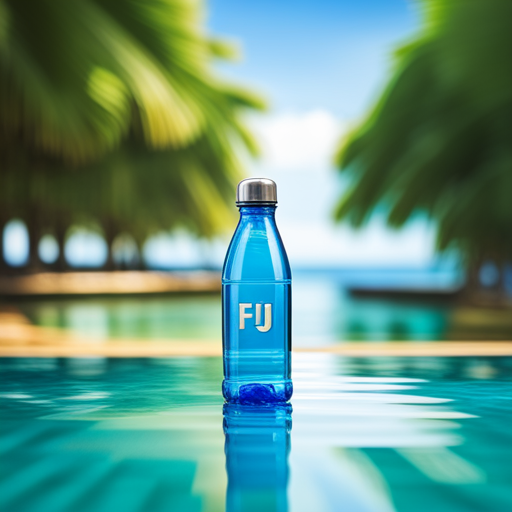Clean and safe drinking water is crucial for maintaining good health. However, water from natural sources such as rivers, lakes, and wells can contain impurities such as bacteria, viruses, and other contaminants that can be harmful to humans.
To ensure that the water we consume is free from these impurities, it is necessary to filter it using various methods. Water filter micron ratings play a vital role in removing impurities from water and ensuring that it is safe for consumption.
Micron rating is a term used to describe the size of the pores or openings in a filter. It indicates the smallest size of particles that a filter can remove from water. For instance, a filter with a micron rating of one can remove particles as small as one micron in size.
The lower the micron rating, the finer the filter and the more effective it is at removing impurities. Understanding the basics of micron rating is essential for selecting the right filter for your water source and ensuring that it is effective in removing harmful contaminants.
Key Takeaways
– Clean and safe drinking water is important for good health, and water filters are necessary to remove impurities.
– Micron rating refers to the size of particles a filter can remove, and choosing the appropriate rating is crucial for safe and clean drinking water.
– Different filtering materials affect micron rating variability, with smaller micron rating filters able to remove smaller particles like bacteria and viruses.
– Regular maintenance is important for optimal filter performance and longevity, and proper disposal of used water filter cartridges is important to minimize environmental impact.
Micron Rating Basics
The pre-existing knowledge on water filter micron ratings highlights the significance of micron size in filtering out contaminants. Micron rating refers to the size of particles that a filter can trap.
Smaller micron rating filters can remove smaller particles like bacteria and viruses, while larger micron size filters can only remove larger particles. Different filtering materials can affect micron rating variability, and filters with higher micron ratings may still remove some harmful contaminants, but effectiveness tradeoffs exist.
Proper disposal of used water filter cartridges is crucial to minimize environmental impact. Using a water filter with a very small micron rating can decrease flow and require frequent replacement, while choosing a filter with a larger micron rating may not be effective enough in removing all contaminants. Therefore, choosing the appropriate micron rating based on water source, impurities, flow rate, and maintenance is crucial for ensuring safe and clean drinking water.
Regular maintenance is also important for optimal filter performance and longevity.
Factors Affecting Micron Rating
Factors such as the type of filtering material used and the flow rate of water can influence the micron rating of a water filter. Different materials have different filtering capabilities and can affect the variability of micron rating.
For example, carbon filters typically have a micron rating between 0.5 and 50 microns, while ceramic filters have a rating between 0.2 and 0.5 microns. The flow rate of water can also impact the micron rating, as slower flow rates allow for more thorough filtration and removal of smaller particles.
Understanding the variability of micron rating due to filter material and flow rate is important for minimizing environmental impact. Filters with smaller micron ratings require more frequent replacement, which can lead to more waste. Additionally, certain materials used in filters, such as activated carbon, can release contaminants into the environment when disposed of improperly.
By considering these factors and selecting a filter with an appropriate micron rating for the specific water source and impurities present, the environmental impact can be minimized while still ensuring clean and safe drinking water.
Choosing the Right Micron Rating
Optimal selection of the appropriate micron rating is crucial in ensuring the effective filtration of impurities in water. Choosing the right micron rating depends on various factors, including the quality of the water source, the type of impurities present, the flow rate, and the maintenance schedule.
It is essential to understand that a filter with a smaller micron rating can remove smaller particles like bacteria and viruses, while a larger micron rating can only trap larger particles. Regular maintenance is also important for optimal filter performance and longevity.
Filters with higher micron ratings may still remove some harmful contaminants, but effectiveness tradeoffs exist. Using a water filter with a very small micron rating can decrease flow and require frequent replacement. Proper disposal of used water filter cartridges is crucial to minimize environmental impact.
By selecting the appropriate micron rating and maintaining it regularly, clean and safe drinking water can be ensured. It is important to understand that the importance of water filter micron ratings cannot be overstated.
Conclusion
In conclusion, understanding water filter micron ratings is vital for ensuring safe and clean drinking water. The micron rating indicates the smallest particle size the filter can capture, and selecting the right rating depends on various factors such as water source, flow rate, and maintenance.
It is essential to regularly maintain and replace filters to ensure optimal performance and prevent harmful contaminants from passing through. Furthermore, monitoring water quality and testing for impurities is a crucial step in ensuring that the filter is effectively removing contaminants.
By following these steps, individuals can make informed decisions and take necessary actions to ensure access to clean and safe drinking water.
